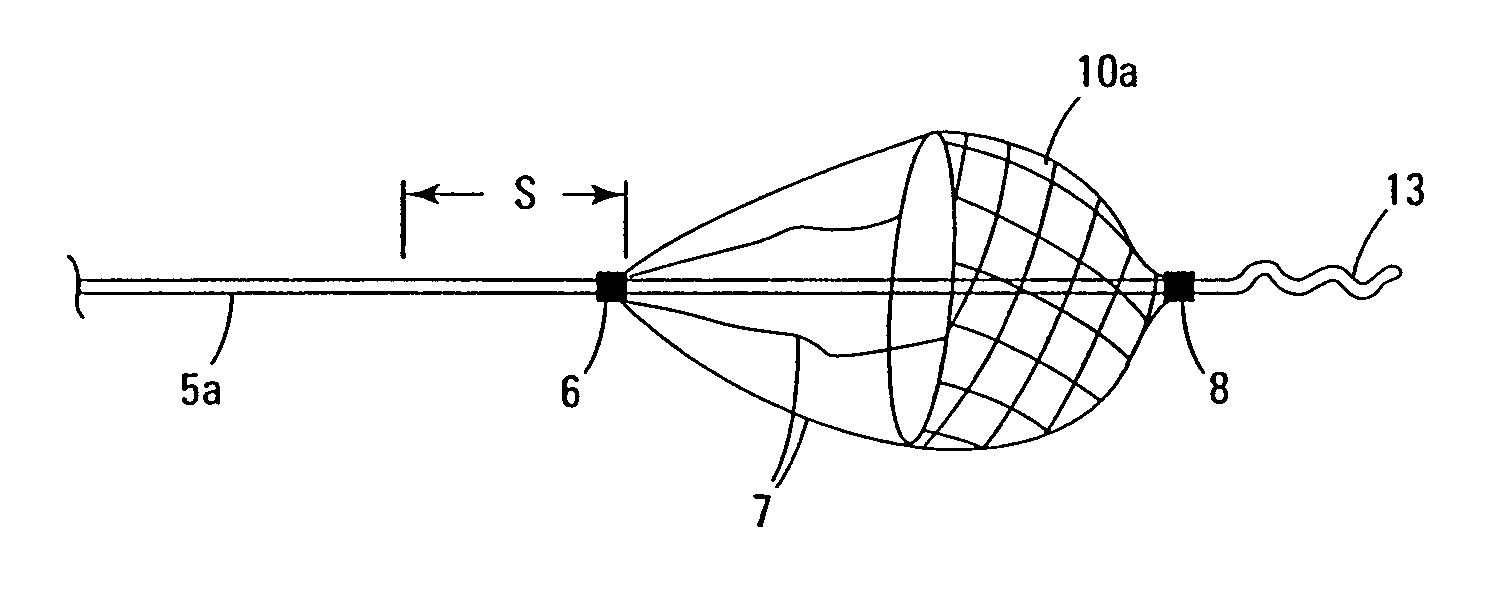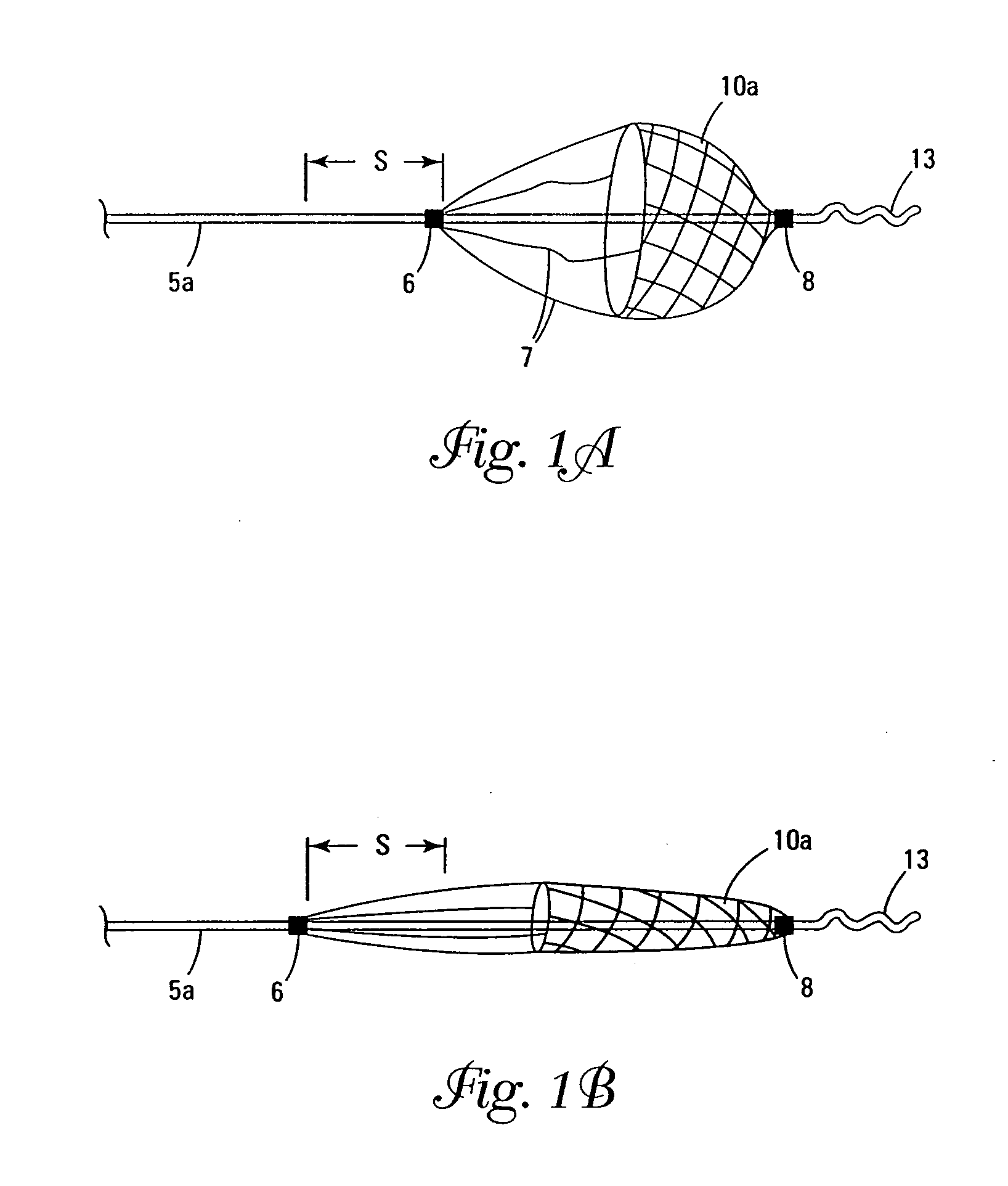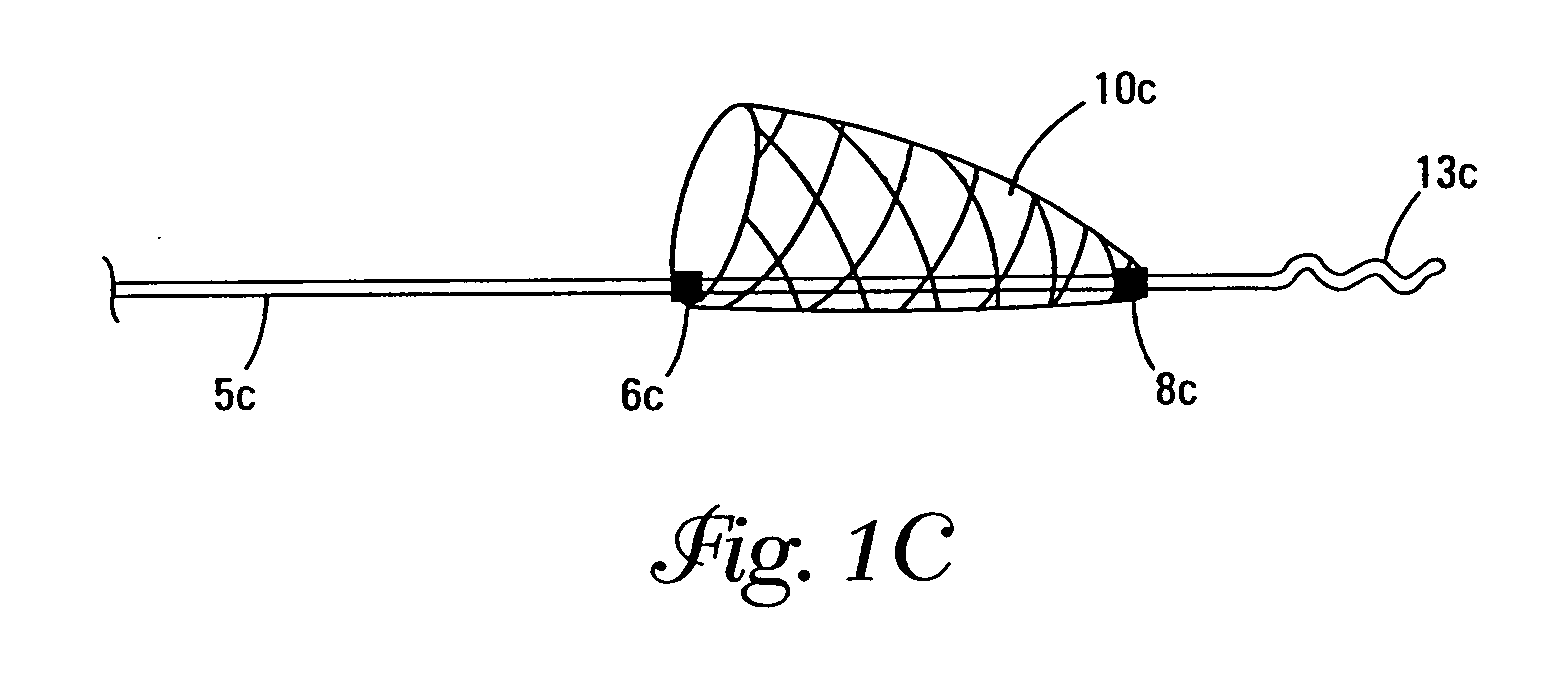Embolic filters having multiple layers and controlled pore size
a filter and pore size technology, applied in the field of emboli and particulate capture devices, can solve the problems of compromising the flow of blood at a location removed from the treatment site, affecting the flow of blood, and affecting the design of filters with appropriate characteristics, etc., to achieve controllable pore size, high embolic capacity, and high percentage of pore area
- Summary
- Abstract
- Description
- Claims
- Application Information
AI Technical Summary
Benefits of technology
Problems solved by technology
Method used
Image
Examples
Embodiment Construction
[0030] The terms “distal” and “proximal” as used herein refer to the relative position of the guidewire, catheters, and filter in a lumen. Thus, “proximal” refers to a location upstream from the “distal” position. That is, the flow of a body fluid, such as blood, moves from the proximal to the distal portions of the device.
[0031] The invention encompasses the use of any filtration device to be deployed in a lumen or vessel of a patient. Although the examples relate generally to filter protection devices deployed distal to a treatment site, the device can also be deployed proximal to a treatment site in connection with interrupting or reversing flow through the vessel. In the case of a proximally deployed device, it will be advantageous to construct the device on a hollow elongate member so as to preserve access to the treatment site through the hollow member.
[0032] In a preferred embodiment, the distal protection system comprises a catheter which is loaded with an elongate support...
PUM
 Login to View More
Login to View More Abstract
Description
Claims
Application Information
 Login to View More
Login to View More - R&D
- Intellectual Property
- Life Sciences
- Materials
- Tech Scout
- Unparalleled Data Quality
- Higher Quality Content
- 60% Fewer Hallucinations
Browse by: Latest US Patents, China's latest patents, Technical Efficacy Thesaurus, Application Domain, Technology Topic, Popular Technical Reports.
© 2025 PatSnap. All rights reserved.Legal|Privacy policy|Modern Slavery Act Transparency Statement|Sitemap|About US| Contact US: help@patsnap.com



